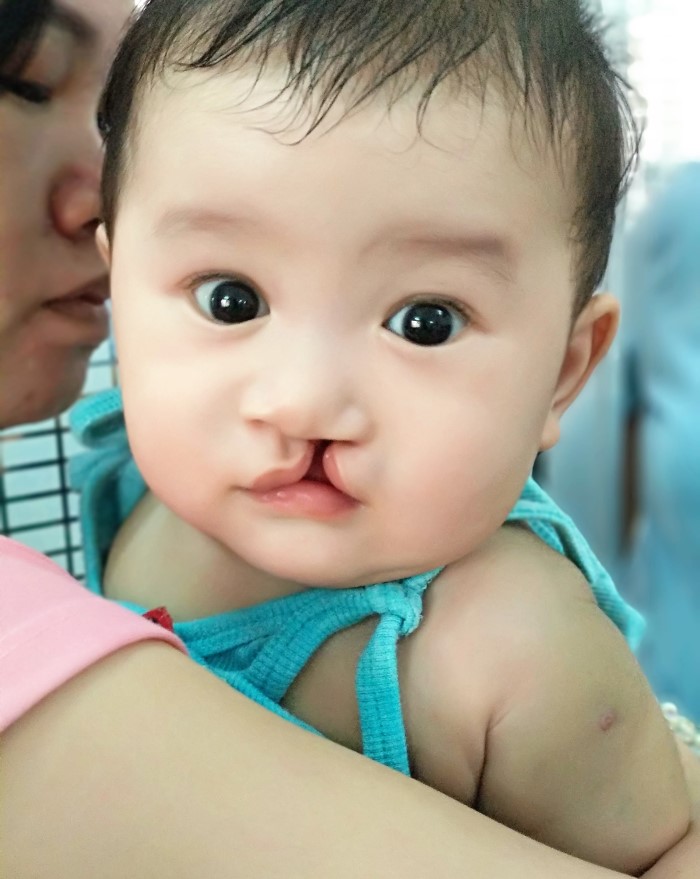Feeding problems are a common consequence of cleft. The babies cannot drink enough because they can't nurse or swallow properly. Many become undernourished as a result, and in severe cases of cleft the child can even die because they cannot drink enough milk or formula. As they become older, many cleft children suffer from social isolation and feel hesitation going to school due to other childrens' and adults' reactions to their appearance and superstitions in the society. This can leave them stressed, anxious and depressed and disturb their social development.
An open palate is less obviously visible than a cleft lip, but also causes many problems. The hole in the palate means that mouth, nose and ears are inter-connected. Speech impairment and frequent ear infections are common consequences. The muscles in the soft part of the palate are connected to the middle ear via a tube (Eustachian tube) and help the middle ear to function properly. For children affected by cleft palate this normal functioning is disturbed, resulting in decreased hearing and fluid discharge through the ear. The damaged sense of hearing in combination with the speech impairment can affect learning and general well being. That is why the closure of the palate is the most important cleft surgery.
The speech and hearing problems resulting from the cleft(s) also further hamper the children's social development.
The good news is that cleft can be treated very well!
